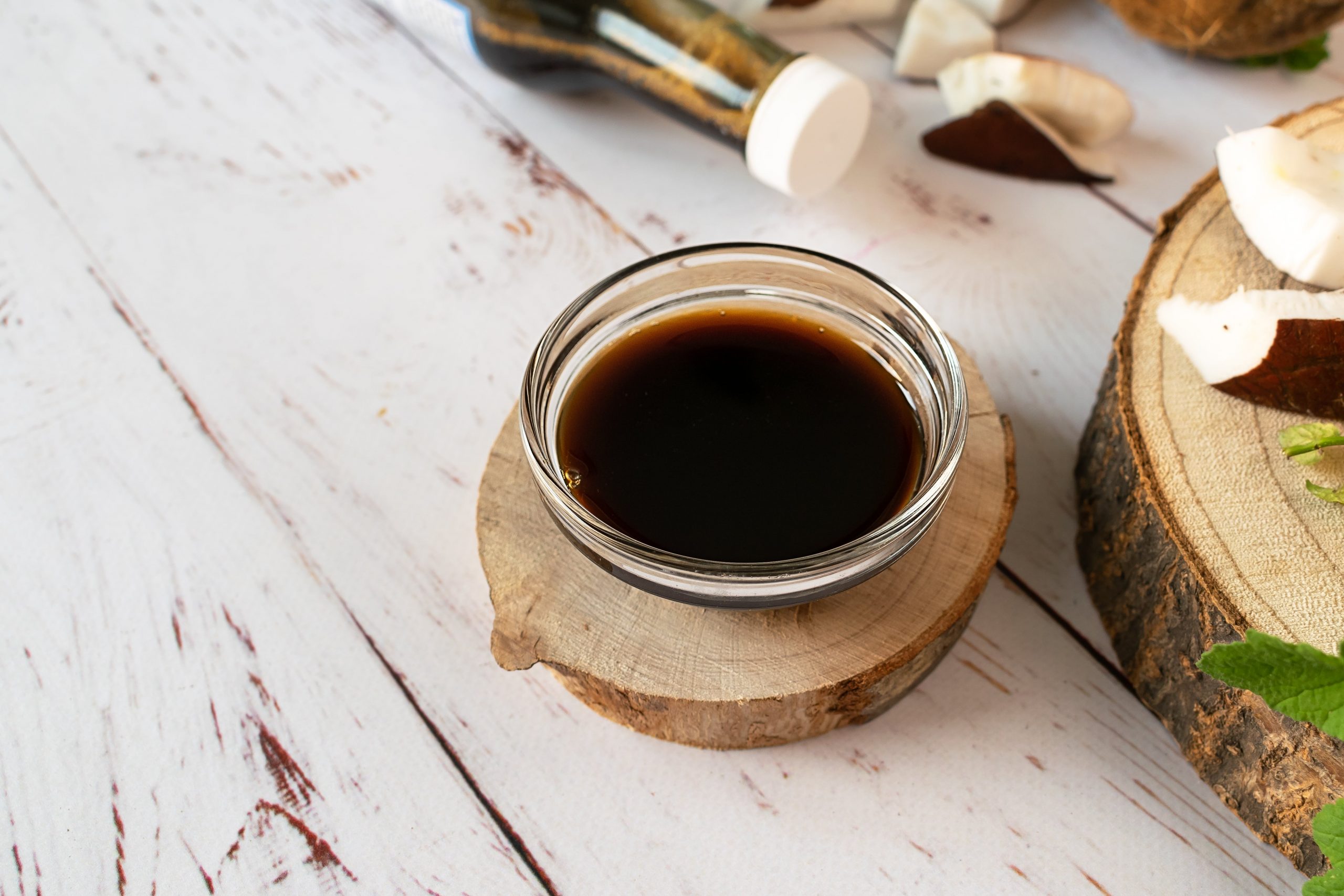Soy sauce is a common and versatile seasoning used in the kitchen for various purposes. Liquid aminos have the same taste and appearance like that as soy sauce. So, can it replace soy sauce?
Cooking is a dynamic practice, and nearly every day, new flavorings, sweeteners, seasonings, and sauces are invented. Liquid aminos are seasonings that can easily be added to different meals. They can be prepared by fermenting coconut sap with salted water. Alternatively, you make them by adding an acidic solution to soybeans which will break them down into free amino acids. The liquid can be used to add a salty flavor to various meals. This way, it may benefit your health in several ways, which are discussed in this article.
1. Rich In Amino Acids
Amino acids are very important for your health. In fact, they are the sole building blocks of proteins. Their benefits are seen in giving muscles structure, promoting gene transfer, maintaining immunity, and cell signaling. Amino acids exist in two forms – essential and non-essential. Your body naturally produces amino acids, and these are called non-essential amino acids, while those that you must obtain from the diet are called essential amino acids. Manufacturers of soy- and coconut-based liquid aminos claim that they contain 16 and 17 amino acids, respectively. These include both essential and non-essential amino acids.
2. They Are Naturally Free of Gluten
Gluten is a type of protein found naturally in whole grains like wheat, barley, rye, and oats. While is it is safe for many people, some, especially those with celiac disease, cannot tolerate gluten at all. It may present with severe abdominal pain, rashes, diarrhea, constipation, among other feelings of abdominal discomfort. When making soy sauce, soybeans and wheat are cooked, fermented, and roasted with salted water and yeast. On the other hand, liquid aminos are a product of mixed hydrolyzed soybeans with salted water or mixing fermented coconut sap with salted water. The resultant liquid is gluten-free. If you are on a gluten-free diet, you may want to replace soy sauce with liquid aminos. It is estimated that 5% of the total world population are allergic to gluten, and therefore, liquid aminos are the best alternative sauce for them. Additionally, those on the paleo diet can also find coconut aminos helpful since they don’t do pulses like soybeans.
3. They Lack Chemical Preservatives
Consumption of preservatives may not be healthy to some people, and generally, it is unhealthy. Many products prepared commercially, like sauce, contain sodium benzoate. According to the National Institutes of Health, many manufacturers add sodium benzoate to their products for extended shelf life and prevention of bacterial or fungal growth in food. While this may be deemed safe, especially when consumed in recommended amounts, some people may react to it and have swellings on the skin, itchiness, hives, and or runny nose. Since liquid aminos do not contain chemical preservatives, they may be good for those who are allergic to sodium benzoates.
4. May Lower Pangs of Hunger
There are five major sensations of taste – sweet, salty, umami, bitter, and sour. Umami, in particular, is sensed in the presence of free glutamate and can be said to be savory or meaty. When glutamic acid, which is an amino acid found in proteins is broken down in foods, free glutamate is formed. The free and natural glutamate found in liquid aminos is as a result of breaking down proteins into amino acids in soybeans or coconut sap. This gives liquid aminos an enjoyable and tasty umami flavor. Studies suggest that taking soups or broths with an umami flavor before meals can lower your feelings of hunger and reduce the craving for snacks.
5. Liquid Aminos Are Versatile
It is very easy to add liquid aminos to your diet. How? You can drizzle liquid amino onto mashed potatoes or vegetables, use them as a dipping sauce for sushi, season your cauliflower fried rice with them, stir them into rice and beans, or make tofu, tempeh, or meat by adding them into marinades. You can also use liquid aminos as a perfect substitute for soy sauce, use them in salad dressings, or spray them over your fresh-popped popcorn. Even if they lack chemical preservatives, liquid aminos can last for three to six months when stored in a cool, dark closet.
Side Effects of Liquid Aminos and Precautions
Liquid aminos are an excellent substitute for soy sauce for people who are allergic to gluten. However, there are some side effects that come with its consumption.
May Cause Allergic Reactions
Liquid aminos are not for everyone. If you are allergic to soy,you may avoid using liquid aminos made with hydrolyzed soybeans. All the same, coconut liquid aminos are a great substitute.
Are Expensive Than Soy Sauce
Many people, especially those without dietary restrictions or allergies, are die-hard users of soy sauce. Plainly speaking, liquid aminos are more expensive than soy sauce. In fact, it is said that their cost is as three times as much as that of soy sauce. While you can buy liquid aminos online, in rare cases will you find them stocked in groceries.
Are High In Sodium
Liquid aminos made with soybeans have a higher content of sodium than soy sauce. According to Food Data Central of the United States Department of Agriculture (USDA) datasheet, soy-based liquid aminos contain about 320 mg of sodium per 5 ml, while soy sauce contains only 293 mg of sodium. Studies suggest that increased intake of sodium can negatively affect your health by increasing your risk of high blood pressure and gastric cancer. To avoid or reduce these risks, it would be best if you consumed 2,300 mg of sodium per day. If you are into liquid aminos, then you can opt for coconut aminos which contain 130 mg of sodium per 5 ml.
Conclusion
Liquid aminos are a replica of soy sauce, having the same taste and looks. Liquid aminos are made from fermented coconut sap or hydrolyzed soybeans which are treated with salted water. They are gluten-free and do not contain any chemical preservatives. However, they should be consumed in moderation as they are high in sodium.
- Chickpeas vs. Garbanzo Beans: What’s the Difference? - April 19, 2024
- How to Manage or Improve Anxiety - September 21, 2023
- The birth of a company - July 29, 2023









